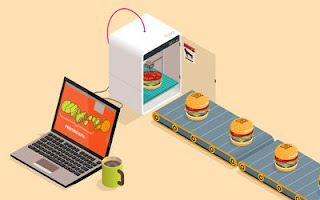On January 27, 2022, several health and environmental organizations submitted a petition to the Food and Drug Administration (FDA) calling for the removal or restriction of bisphenol-A, commonly known as BPAs, in food packaging.1
BPA is a chemical compound used to make plastic. It was first approved by the FDA in the early 1960s and has been deemed safe by the federal agency as of 2008, despite increasing concerns from the scientific community about its safety.2
A coalition of scientists, physicians, and environmentalists are calling for BPAs removal due to potential health risks. Research shows that when consumed, BPAs are metabolized in the liver, and due to their structure, interact with endocrine receptors in the body.34
“Exposure to BPAs has been shown to interfere with how certain hormones function, such as estrogen, testosterone, thyroid, and others,” Kristamarie Collman, MD, a Florida-based board-certified family medicine physician, told Verywell. “Additionally, they have been associated with fertility issues, cancer, and even cardiovascular disease.”
Gas Stoves Are Bad for the Environment Even When They're Turned Off
Carrie Lam, MD, medical director of Lam Clinic Integrative Medicine, also noted BPA exposure during pregnancy has led to negative health consequences. “Low-level BPA exposure during the first trimester of pregnancy may affect the development of the area of the brain associated with fear, obesity, early puberty, and impulse control,” Lam said. Research also shows that BPAs have affected brain development in pregnant mice.5
In the petition, they cited findings by the European Food and Safety Authority (EFSA) that found that the average American’s BPA exposure is 5,000 times greater than the safe level of 0.04 ng BPA per day, as set by the European Union.1
By limiting BPA exposure, the coalition wrote that it would “allow the immune system to more successfully respond to exposure to human pathogens in or on food.”
Where is BPA found?
So how do we typically come into contact with BPA? The chemical is found in common household products, including:67
Containers
Canned foods
Any food packaged in plastic containers
Feminine hygiene products and toiletries
The coalition is asking the FDA to modify their current policies on BPA in products that come into contact with food, such as adhesives used in food packaging.1
Study Finds Toxic 'Forever Chemicals' in Most Stain- and Water-Resistant Textiles
The organization has also asked the FDA to consider the removal of additional chemicals like:1
Rosins ester
Phenolic resins
Epoxy resins
Glycidyl ethers
Melamine-formaldehyde
These chemicals have been found in tableware.8 And can also lead to potential negative health outcomes.
Current Restrictions on BPAs
Despite this growing body of evidence about BPAs impact, there are no federal restrictions on the level or amount of BPAs allowed in food packaging or other consumer goods. Only recently, the FDA accepted two petitions on the use of BPAs in baby products and banned the use in baby bottles, sippy cups, and infant formula packaging.9
Much of the current BPA restrictions are enforced on the state level, according to Amy Shah, MD, a double board-certified medical doctor based in Phoenix, Arizona.
“Around 15 states have their own laws restricting the use of BPA in food contact materials that are intended for children,” such as baby bottles and children’s items, Shah said. Some states like Connecticut ban the use of BPAs in reusable containers entirely.
What This Means For You
You can learn more about BPAs at the National Institute of Environmental Health Sciences.
How Can You Avoid BPAs?
Because BPAs are commonly found in plastic, Lam recommends limiting exposure to products encased in plastic and canned foods. Additionally, “be aware of the label, BPA-free doesn’t necessarily mean BPS (bisphenol S) free,” Lam said. That’s because BPA-free products can still contain bisphenol S, a substitute for BPA.10
You can also limit your contact with BPAs by buying fresh or frozen foods in lieu of processed foods, and “avoiding plastic containers that get hot in the microwave,” Collman said.
Shah also recommended researching the companies you buy food and consumer goods from to determine whether they have banned BPAs and substitutes altogether.
Is the Pesticide Residue on Fruits and Veggies a Health Concern?
From what is known about BPAs, scientists and physicians agree that BPA exposure is associated with a wide range of negative health conditions.3 The FDA is continuing to review ongoing scientific evidence about BPAs and whether they are safe.2 But for now, you should try to avoid them if you can.
“Until more information is known, it’s important to take a precautionary approach by limiting exposure to these chemicals, especially when preparing or making certain foods,” Collman explained.
